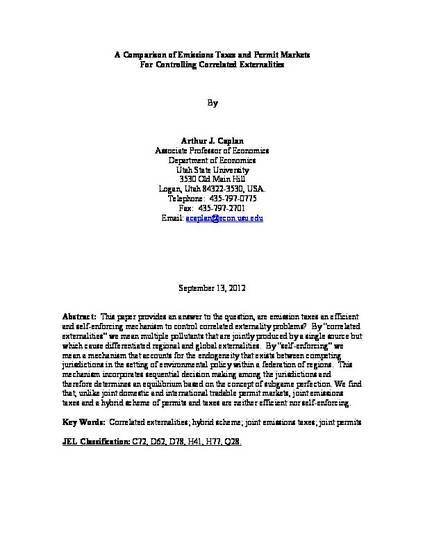
This paper provides an answer to the question, are emission taxes an efficient and self-enforcing mechanism to control correlated externality problems? By “correlated externalities” we mean multiple pollutants that are jointly produced by a single source but which cause differentiated regional and global externalities. By “self-enforcing” we mean a mechanism that accounts for the endogeneity that exists between competing jurisdictions in the setting of environmental policy within a federation of regions. This mechanism incorporates sequential decision making among the jurisdictions and therefore determines an equilibrium based on the concept of subgame perfection. We find that, unlike joint domestic and international tradable permit markets, joint emissions taxes and a hybrid scheme of permits and taxes are neither efficient nor self-enforcing.
